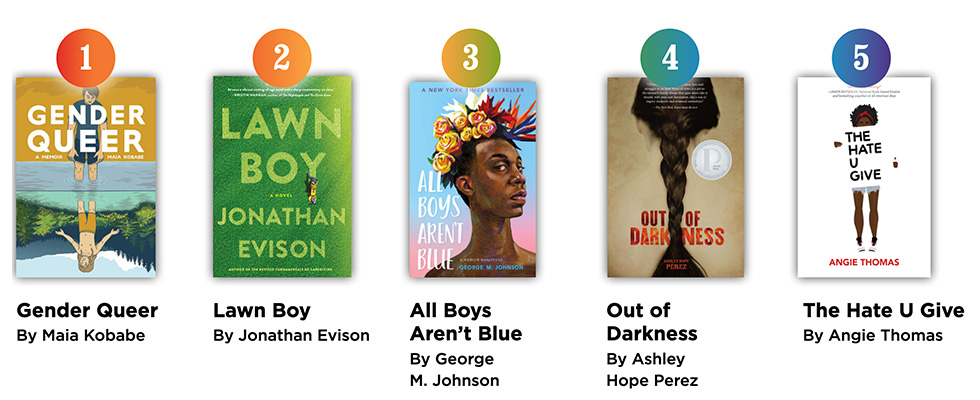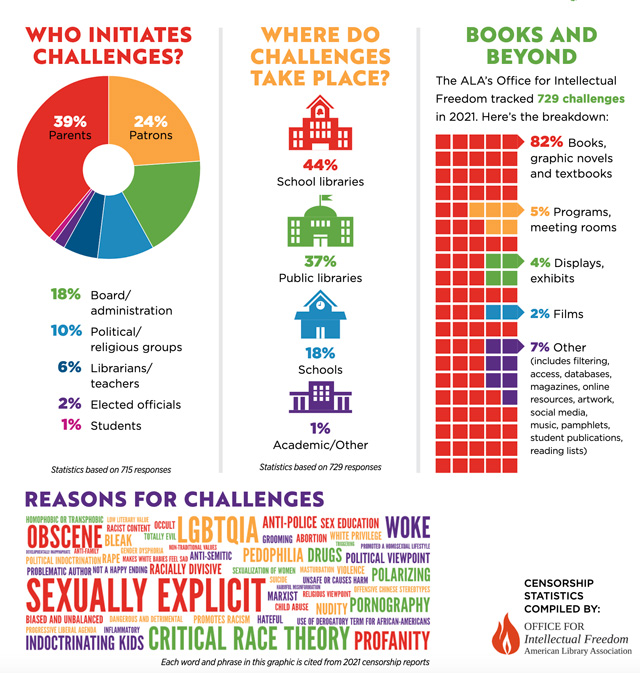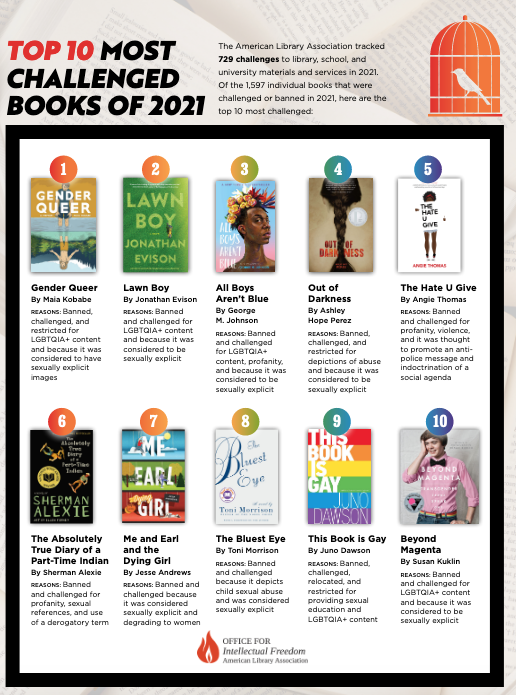By Victor Marinez
Banned Books Week celebrates the freedom to read, encouraging everyone to indulge in books that have been censored. The importance of this week has increased tenfold as attempts to restrict books have dramatically increased, according to the American Libraries Association (ALA) report, “State of America’s Libraries 2022.” So far in 2022, 1,651 books have been in the crosshairs of those who attempt to ban and restrict works, according to the ALA. People have filed complaints about these books to education districts across the country in order to ban them. This is the highest number of complaints since counting began, already surpassing 2021, a year in which 1,597 complaints were filed.
In addition to censorship, the ALA has voiced its concern over what is says is threats of violence against librarians. In a June 24 statement this year, the ALA said, “The American Library Association condemns, in the strongest terms possible, violence, threats of violence and other acts of intimidation increasingly taking place in America’s libraries, particularly those acts that aim to erase the stories and identities of gay, queer, transgender, Black, Indigenous, persons of color, those with disabilities and religious minorities.”
Many educators are worried about this growing trend. Housing Works Bookstore Cafe hosted ‘This Story Matters’ on September 20 to raise awareness about censorship. There was representation from the New York Public Library (NYPL) and the Intellectual Freedom Center (IFC). Both organizations allow access to banned books and support those who are being censored for what they choose to read.
The IFC works with students to protect their right to read and with educators to safeguard academic freedom. It provides a censorship reporting hotline, an online book rationale database, and an affiliate support network. The organization is constantly looking for help from those who share its goal of combating efforts to stifle literary works. As its online presence grows, so does the need for help writing rationales for why banned books should be taught.
Similarly, the New York Public Library gives youth access to books. Leigh Hurwitz, a member of the Brooklyn Library, helped launch “Books Unbanned” a program that will allow students all around the country direct access to banned books. Students can sign up for an eCard and request the books digitally. The library already has 5,500 applications created, 3,600 eCards activated, and 2,150 actively in use. “These are extremely good proportions for the library,” Hurwitz said. “You have no idea how many people have library cards and don’t use them.”
This program started in the summer of 2022 and the library has over 8,900 checkouts per month. The books that have been checked out range widely from genres like LGBT+ and thrillers to comics and novels. “Kids gravitate towards books and stories in which they could see themselves in,” said Hurwitz.
The panel ended with a Q&A section. “Why are books being targeted?” was the final question. “Because they are so powerful,” was the consensus of the panel, which was led by LaMar Timmons-Long, a professor at Pace University. Timmons-Long said censorship is a tool to silence those who want to be seen and heard. “Stories that are rich in content and experiences like I Know Why the Caged Bird Sings are silenced out of fear because those stories give power to the powerless,” he said.
a




